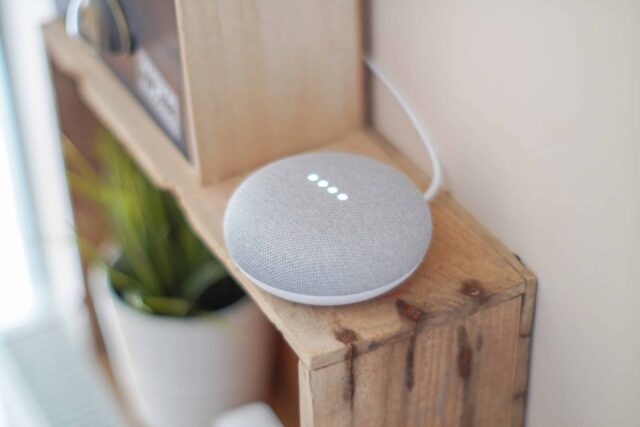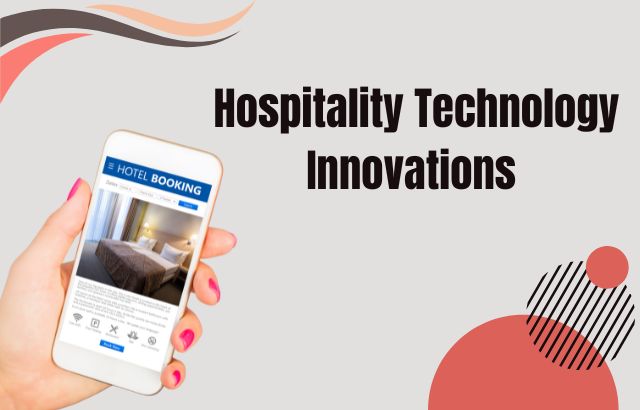The hospitality industry is undergoing a profound transformation, and the world’s top hotels are embracing cutting-edge technology to redefine guest experiences, optimize operations, and remain competitive in an increasingly tech-driven market. In this article, we’ll dive into how industry leaders are leveraging technology to set new standards, along with the role of business strategists in making it all come together.
Table of Contents
Hospitality Technology Innovations at World Hotels
1. Seamless Booking and Check-In

A seamless, hassle-free booking process is essential in today’s fast-paced world. Leading hotels are investing in intuitive websites, mobile apps, and AI-driven chatbots to simplify the booking process. These tools offer real-time room availability, pricing, and secure payment options, ensuring that guests have a smooth experience from the very start.
Example: Marriott International’s mobile app allows guests to book rooms, check in, and even use their smartphone as a room key, eliminating the need for front desk interactions altogether. This enhances the guest experience while streamlining hotel operations.
Role of Business Strategists: Strategists work closely with IT teams to design and implement user-friendly platforms that align with both customer expectations and operational goals. They also analyze user feedback to continuously improve the booking experience.
2. Personalization at Scale

The ability to deliver tailored experiences to each guest is one of the biggest game-changers in modern hospitality. By leveraging advanced data analytics and machine learning, top hotels can craft personalized experiences based on guest preferences, behaviors, and past interactions. This could range from room temperature adjustments to personalized dining recommendations.
Example: The Cosmopolitan of Las Vegas uses data-driven insights to create guest profiles. These profiles enable staff to offer personalized services, such as room preferences and tailored recommendations for activities or restaurants.
Role of Business Strategists: A business strategist works to integrate data analytics with CRM (Customer Relationship Management) systems to develop personalized offerings. They also ensure the data-driven approach remains customer-centric, enhancing guest satisfaction and loyalty.
3. Smart Room Technology

In-room smart technology has become a key differentiator for high-end hotels. Guests can control room features such as lighting, temperature, and entertainment systems using in-room tablets or their smartphones. Voice-activated assistants, such as Amazon Alexa or Google Assistant, are also becoming increasingly popular in luxury hotels.
Example: The Wynn Las Vegas equips its rooms with Amazon Echo devices, allowing guests to control lighting, drapes, and request room service—all through voice commands. This not only provides convenience but also elevates the overall guest experience.
Role of Business Strategists: Strategists are crucial in selecting and integrating the right technologies for smart rooms. They analyze customer preferences and trends to ensure that these technologies deliver true value and create a competitive edge for the property.
4. Efficient Operations

Efficiency is key to ensuring smooth operations while keeping costs under control. Hotels now rely on cloud-based Property Management Systems (PMS) to handle everything from reservations to billing. These systems help with everything from check-ins to housekeeping coordination, improving productivity and operational transparency.
Example: Hilton Hotels & Resorts uses a cloud-based PMS to manage reservations and guest information across its global properties. This system not only increases efficiency but also enables the hotel to provide a consistent guest experience at scale.
Role of Business Strategists: Business strategists play a pivotal role in identifying the most suitable technologies for hotel operations. They collaborate with IT and operations teams to create integrated systems that streamline processes, reduce costs, and improve the guest experience.
5. Enhanced Guest Engagement

Engaging guests before, during, and after their stay has become a priority for leading hotels. Through mobile apps, personalized concierge services, and even pre-arrival communication, hotels are keeping guests informed and engaged at every touchpoint. They are also leveraging social media platforms to maintain lasting relationships and gather valuable feedback.
Example: Four Seasons Hotels and Resorts’ mobile app offers a variety of services, including personalized itineraries, spa reservations, and room service requests. It even enables guests to interact with hotel staff in real time, making the entire stay more connected and personalized.
Role of Business Strategists: Strategists ensure that guest engagement technologies are seamlessly integrated into the overall guest journey. They focus on driving engagement through various digital touchpoints and also use guest feedback to refine and adapt services.
6. Security and Privacy

Data security is paramount for any hotel handling personal guest information. High-end hotels invest in cutting-edge cybersecurity solutions to safeguard guest data while complying with privacy regulations like GDPR. This ensures that guests feel safe while staying at these properties.
Example: InterContinental Hotels Group (IHG) employs advanced encryption and cybersecurity protocols to protect guest data. Their commitment to data security not only builds trust with guests but also reduces the risk of cyber threats.
Role of Business Strategists: Business strategists work alongside IT and legal teams to ensure that hotels adhere to global privacy laws and implement robust security measures. They also stay updated on emerging risks and help the business adapt to evolving cybersecurity landscapes.
7. Sustainability Initiatives

Sustainability has moved from a nice-to-have to a must-have in the hospitality industry. Leading hotels are integrating green technologies like energy-efficient lighting, water conservation systems, and renewable energy solutions. These efforts reduce both costs and environmental footprints.
Example: The Fairmont Waterfront in Vancouver has a heat recapture system that captures waste heat from its cooling systems and reuses it to provide hot water, thus reducing energy consumption and lowering greenhouse gas emissions.
Role of Business Strategists: Strategists identify opportunities for cost-saving and sustainability. They balance the financial aspects with environmental goals, helping hotels implement green initiatives that are both profitable and impactful.
Frequently Asked Questions (FAQs) on Hospitality Technology Innovations at World Hotels
Q: How are hotels using data to enhance the guest experience?
A: Hotels are leveraging data analytics and machine learning to personalize guest experiences, offering tailored recommendations and customizations like preferred room settings and curated activities.
Q: What role does smart room technology play in enhancing guest comfort?
A: Smart room technology allows guests to control lighting, temperature, and entertainment systems through mobile apps or voice assistants, providing greater convenience and comfort during their stay.
Q: How do hotels ensure the security of guest data?
A: Hotels invest in advanced encryption and cybersecurity measures to protect guest data. They also ensure compliance with privacy regulations like GDPR to maintain trust and safety.
Q: What is the role of business strategists in adopting new technologies in hotels?
A: Business strategists work alongside IT, operations, and marketing teams to integrate new technologies that align with business goals. They focus on maximizing ROI, improving operational efficiency, and enhancing the guest experience.
Q: How are hotels adopting sustainable practices?
A: Many hotels are implementing energy-efficient systems, water conservation techniques, and using renewable energy sources to reduce their environmental impact and operate more sustainably.
Hospitality Technology Innovations at World Hotels Final Words
From booking and check-in to smart rooms and sustainability, technology is at the forefront of driving innovation in the hospitality industry. By embracing these tech-driven strategies, leading hotels are not only improving operational efficiency but also offering enhanced guest experiences that are both personalized and memorable. Business strategists are the key players who tie all these elements together, ensuring the smooth integration of technology while maximizing ROI and guest satisfaction.
As the hospitality landscape continues to evolve, it’s clear that technology will play a critical role in shaping the future of hotels—setting new benchmarks that others in the industry will strive to meet.












